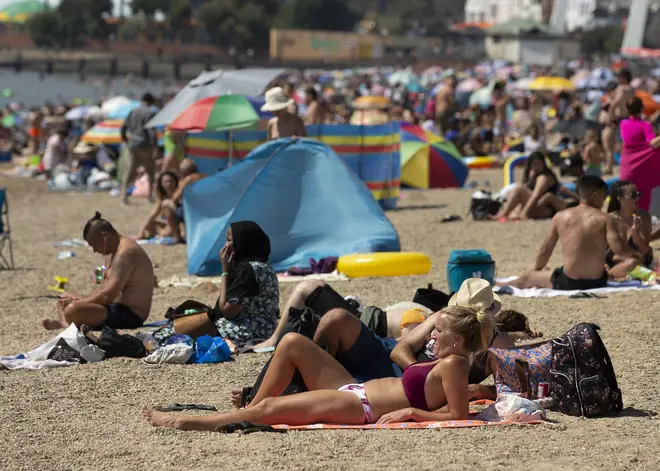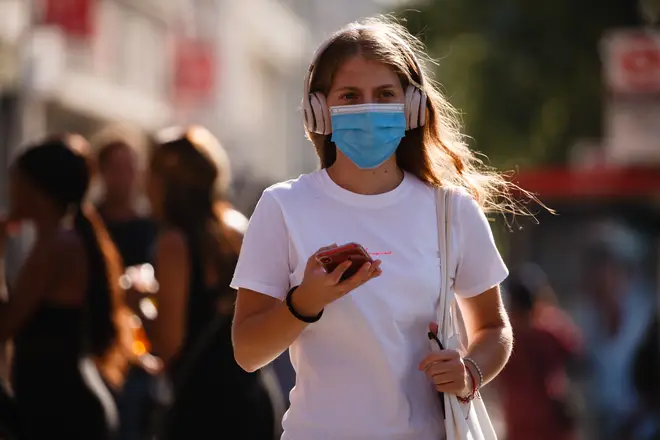
Ian Payne 4am - 7am
19 November 2020, 19:03

More than 2,500 people in England died as a result of heatwaves this summer, figures suggest.
There were an estimated 2,556 excess deaths during the three heatwaves in late June, late July and in August, with people aged 65 and over making up the vast majority of those who died, data from Public Health England (PHE) shows.
Climate change is increasing the likelihood of periods of extreme heat, including tropical nights when the temperature never drops below 20C, which were seen in August this year.
Heatwaves cause premature deaths from cardiac, kidney and respiratory disease, put pressure on health and social services and hit wellbeing and productivity.
The rising threat of heatwaves has prompted experts to warn of the need to adapt homes, hospitals and care homes to protect vulnerable groups such as older people from the impacts of high temperatures.

Figures for the excess deaths linked to the hot periods this summer were calculated by comparing deaths from all causes on heatwave days with the average from the seven days before and after the hot weather, and by removing the estimated number of deaths attributed to coronavirus.
The number of people dying in the heat in 2020 was comparable to the 2,234 excess deaths seen during the 2003 Europe-wide heatwave and the 2,323 who died in the heatwave in 2006, PHE said.
But it was the highest level of excess deaths since the heatwave plan for England was brought in to protect health from sweltering spells of weather in the wake of the 2003 event.
Heatwaves hit England on three occasions this summer, firstly on five days from June 23 to 27, then for three days on July 30 to August 1, and thirdly for 11 days from August 5-15.
The third heatwave was by far the worst, with 1,734 excess deaths.
Dr Yvonne Doyle, medical director for Public Health England, said: "The number of all-cause excess deaths recorded during the heatwaves this summer was sadly higher than we have seen in previous years.
"While very high day and night-time temperatures were recorded in August over a prolonged period this alone doesn't fully explain the increase. Further work is needed to understand how the Covid-19 pandemic may have worsened the impact of hot weather on people's health."

Acting director of the Environmental Change Institute at the University of Oxford, Dr Friederike Otto, said the likelihood of heatwaves in Western Europe in the last few summers had increased by more than 10 times, and they are hotter than they would have been without climate change caused by human activity.
Dr Sandy Robertson, from the UK Health Alliance on Climate Change and an emergency medic, said: "During heatwaves the increased pressure on A&E waiting rooms is clear to see.
"Dehydration and overheating can have a serious effect on health, and can exacerbate existing health conditions.
"Unless the Government takes urgent action to address the climate emergency the number of excess deaths due to heatwaves is likely to increase year on year."
The figures also reveal that London and the South East saw the highest levels of excess deaths, with 488 in the capital across the three heatwaves and 724 in south-east England.
Of the total excess deaths, 2,244 were among people aged 65 and over.